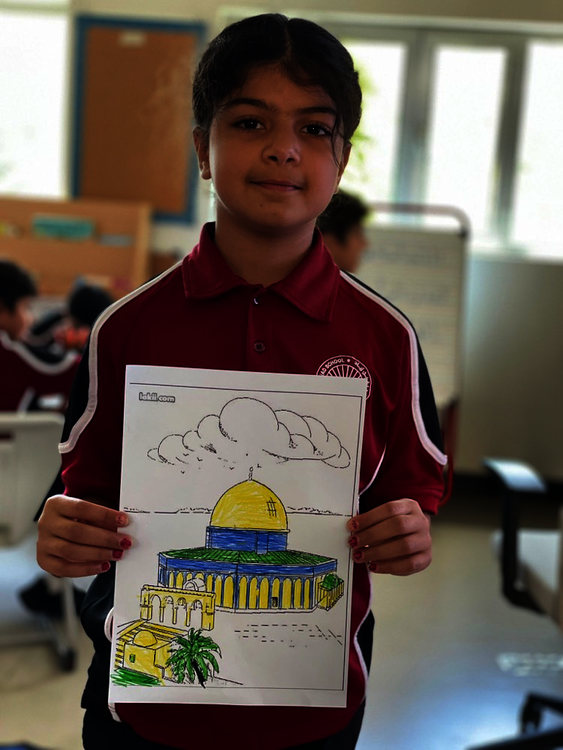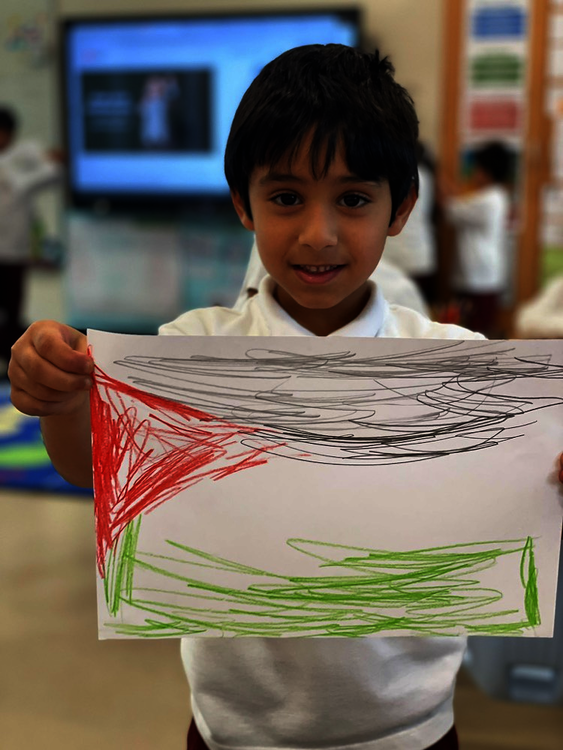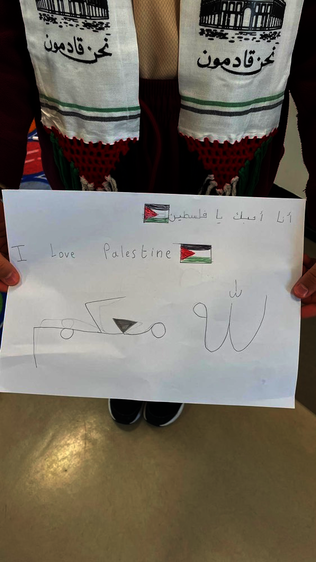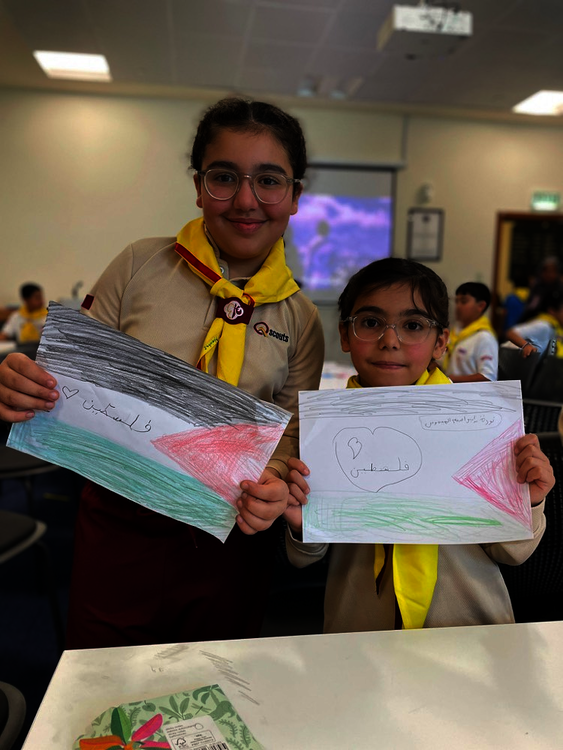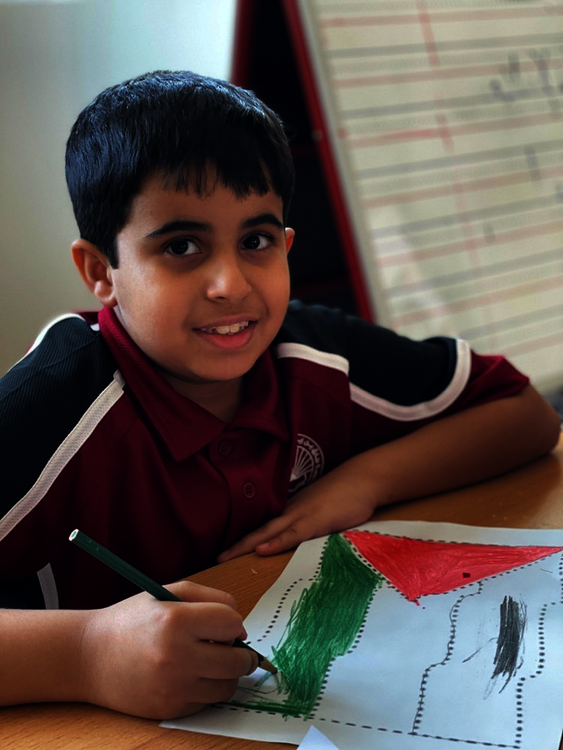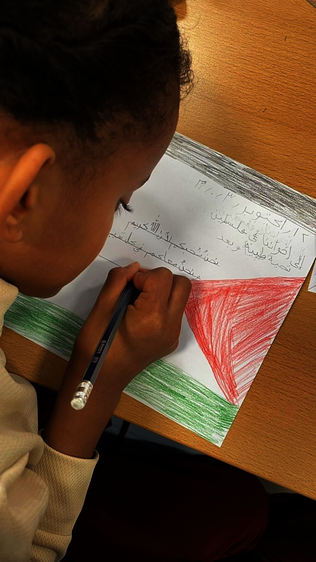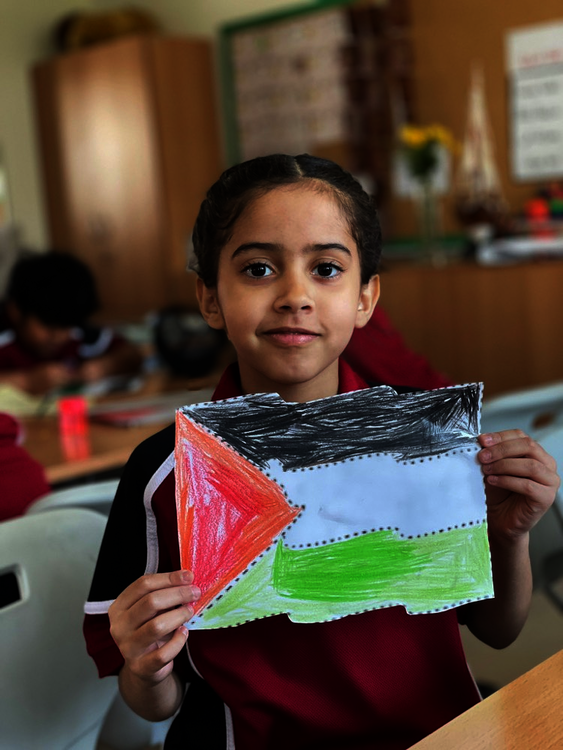Educators in Qatar Foundation (QF) schools highlighted the importance of providing a platform for children to express their thoughts and feelings about the ongoing Palestinian crisis, and stressed the need to promote a safe space for children to learn about and discuss various issues, including the Palestinian cause.
Fatima al-Ansari, a teacher at QF’s Tariq Bin Ziad School noted that the academic environment encourages children to participate in meaningful discussions on issues taking place around them.
“Following the current events in Palestine, we organised many activities that children could connect to the Palestinian cause. These activities include drawing classes, and discussion and dialogue sessions, in addition to competitions and educational games. These efforts aim to empower children and allow them to express themselves and participate in meaningful discussions,” al-Ansari said.
“Sometimes children themselves open up discussions about current events. And as a teacher, I make sure to guide them in understanding the correct methods and sources for obtaining information for their discussions. Children often surprise me – how deeply they think through the questions they ask.”
Al-Ansari stressed the importance of ensuring that age-appropriate information is shared with children. Introduction to the ideas of conflict, freedom, justice, should be done carefully, while also ensuring that they understand how Palestinians are seeking to secure their rights to live safely in their own homeland.
She pointed towards stories, noble hadiths, and Qur’anic verses as tools to enhance children’s understanding of the Palestine cause and its position as a historical and cultural centre.
According to al-Ansari, educators at QF schools provide children with a variety of means of expression, including drawing, acting, and singing, to encourage them to think freely and ask questions without fear.
Children are also asked for their opinions and suggestions on how to help and support children and families affected by the war.
Al-Ansari presented a set of steps that can be followed by educators and parents when discussing the Palestinian issue with children. “Offer simple information to younger children and engage in more in-depth discussions with older children. Use clear and easy-to-understand language to explain concepts and events, while make sure to reduce any fears or negative feelings. And promote hope and optimism. Listen to your child’s questions and answer them carefully.”
Mustafa Faraj, a well-being co-ordinator at Qatar Leadership Academy, another QF school, highlighted the importance of enhancing students’ understanding and awareness so that they become better global citizens who are more understanding and interested in humanitarian and social issues.
“The Palestinian cause is considered one of the most important issues in the Islamic world. By enhancing students’ understanding of it, we inspire them to participate in efforts to promote justice and social change. This is in addition to promoting charitable work and social activism related to the Palestinian cause which contributes to providing support to the Palestinian people.”
He pointed out that QF schools provide mental support to students who are directly related to the issue through several initiatives, including the Wellness Ambassadors Programme, where students interact in events and campaigns to raise awareness of mental health and overcoming trauma.
“QF schools provide many resources that promote the values of understanding, empathy and support for the younger generation as they deal with global issues which will eventually enable children to become informed global citizens who are ready to contribute positively to a more inclusive world,” he added.
